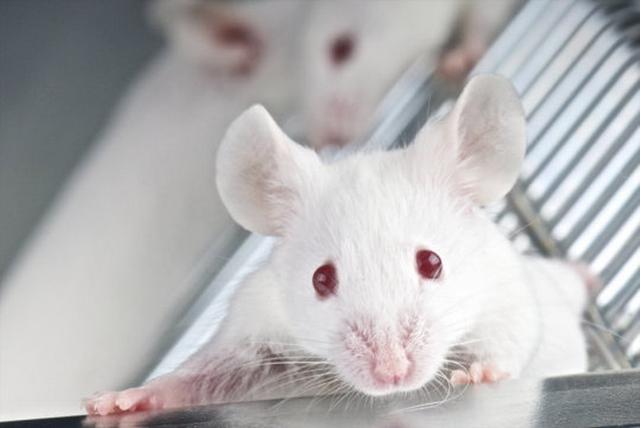Brainy Mice' May Lead to Better Cognitive Disorder Treatments
有了神奇力量,老鼠不再怕貓
According to a new study, by changing a gene in mice, researchers were able make them more intelligent and less susceptible to fear and anxiety.
最新研究發現,通過改變老鼠基因能夠使其更加聰明,緊張感和焦慮感也會慢慢減弱。

Researchers believe their work could lead to new treatments for disorders that include cognitive declines,
研究人員認為這可能是治療認知障礙疾病的新療法,
such as Alzheimer's disease, schizophrenia and post-traumatic stress disorder.
比如說阿爾茨海默病(Alzheimer's disease),精神分裂和創傷后應激障礙等疾病。
The researchers altered genes in mice to inhibit PDE4B is present in many organs of vertebrates, including humans.
研究人員改變老鼠基因成功抑制磷酸二酯酶-4B(PDE4B)的活躍性,很多脊椎動物體內都含有這種酶,包括人類。
In behavioral tests, the mice whose genes had been learned faster, remembered events longer and solved complex exercises better than mice without the alteration.
在行為能力測試中,與普通老鼠相比,PDE4B-抑制老鼠的學習能力增強,記憶時間更長,更擅長完成復雜運動。
The PDE4B-inhibited mice also spent more time in open spaces, brightly lit spaces and displayed lower levels of fear in the presence of cat urine,
PDE4B-抑制老鼠多數時間會呆在空曠、燈光輝煌的空間,對貓尿的恐懼感也大幅度減弱,
as opposed to regular mice who displayed normal levels of fear at the potential of a cat nearby.
而普通老鼠則喜歡呆在黑暗封閉環境,對貓可能出沒的區域也甚是恐懼。












